Croatian women challenge brutal pregnancy 'care'
- Published
"The pain of giving birth was nothing compared to this" - one woman's account of agonising medical treatment
Croatia has been experiencing its own #MeToo moment, as women protest at being put through avoidable suffering and abuse during pregnancy and childbirth.
Campaigners call it "obstetric violence" and complain it has been going on for decades.
But it was not until one opposition MP spoke out in parliament about her own ordeal that a national debate started on social media - under the hashtag #BreakTheSilence.
Ivana Nincevic-Lesandric described the "medieval treatment" she had experienced at the hands of medical staff after a miscarriage.
"They tied up my arms and legs and started the procedure of curettage without anaesthesia. That means scraping the cervix, the internal organ, without anaesthesia. Those were the most painful 30 minutes of my life," she told shocked MPs.
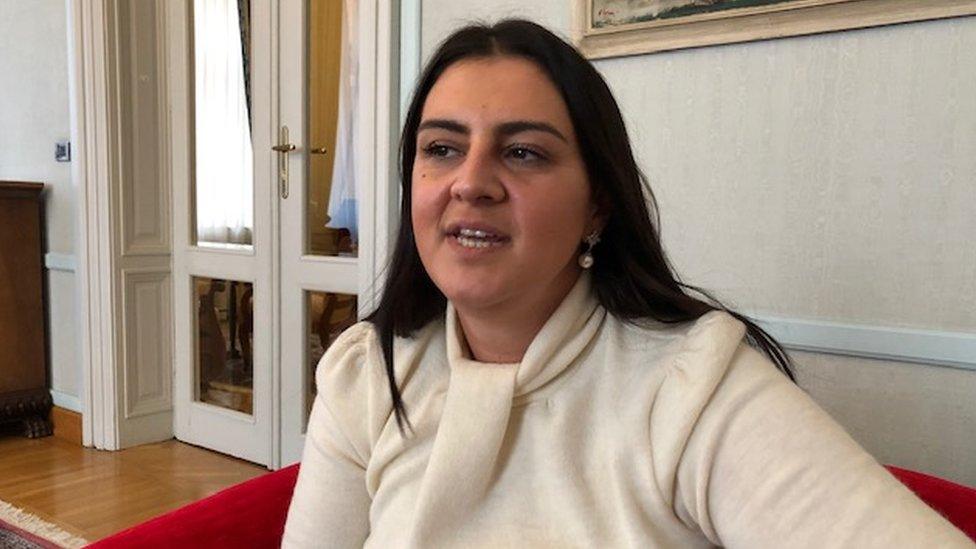
Ivana Nincevic-Lesandric's account left some members of parliament in visible discomfort
Health Minister Milan Kujundzic suggested the story was a figment of her imagination: "This is not how it's done in Croatian hospitals. You can give me your medical records if you want and I'll take a look."
How 400 women broke their silence
But many Croatians leapt to her defence, especially women, calling her statement bold and unprecedented.
Croatia is a predominantly Catholic country, and many are reticent about talking openly about female reproductive health in what is still a largely patriarchal society.
Pressure group Parents in Action (Roda), which for years has tried to highlight the issue, followed up the MP's testimony with a #BreakTheSilence campaign.
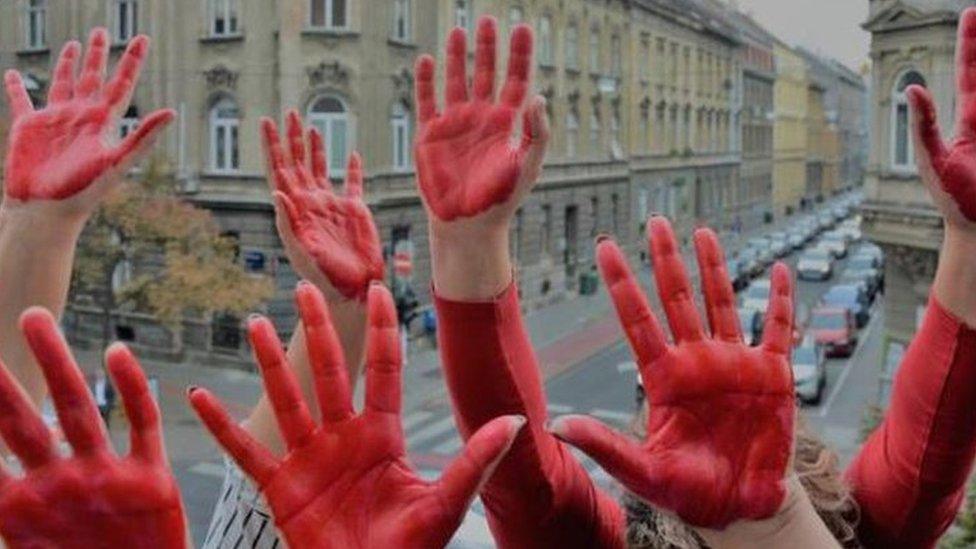
As part of Roda's campaign, Croatians were asked to leave red fingerprints in public spaces
In one weekend alone they received testimonies from 400 women, says spokeswoman Daniela Drandic. They duly handed them to the health ministry.
"We have reports of biopsies being done without anaesthetic, of medically-assisted fertility procedures without anaesthetic, sewing to repair tears after vaginal childbirth, episiotomy being done without anaesthetic," she says.
Among the accounts were examples of abuse and women being talked to in a demeaning way during childbirth.
"Things like: 'If you could have sex you should now be able to take it,' or 'it was nice before and now the pain comes later' - telling women that they are being sewn to make their husbands happy."
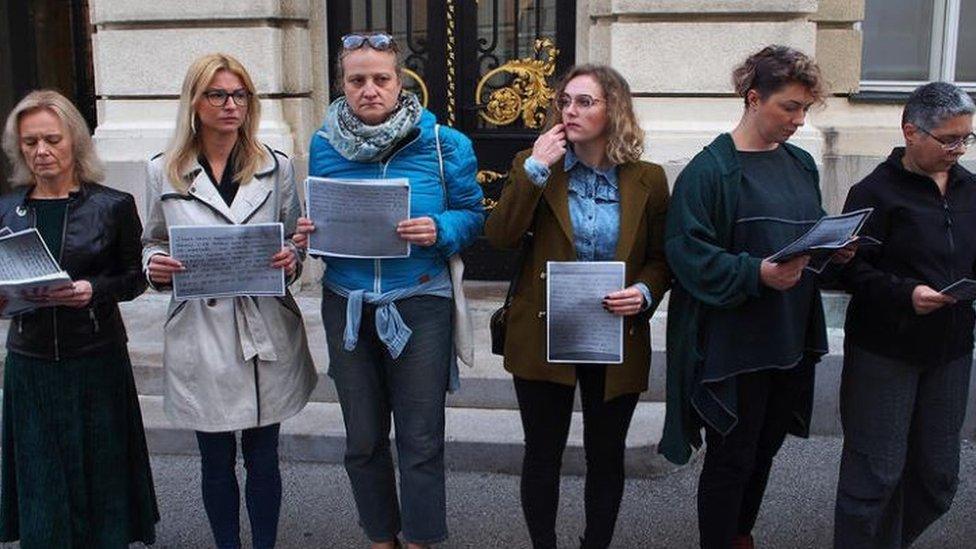
Activists read out testimonies of women from across Croatia in front of parliament in Zagreb
One of the 400 women is Jasmina Furlanovic, who still gets tearful when she recalls the humiliation and pain she endured when she had to have her placenta removed a few years ago.
"They started the procedure without any explanation. The nurse was restraining me," she said.
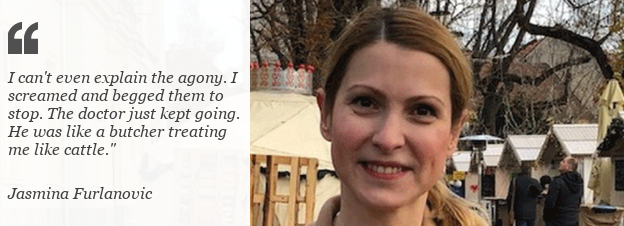
The health ministry says the personal testimonies collected by Roda were a "relatively small number," and are hard to investigate because they were anonymous.
But it has admitted that "certain differences" exist among hospitals in the use of anaesthesia and that there is a need to improve communication between medical staff and patients.
Both the health minister and Split hospital, where MP Ivana Nincevic-Lesandric was treated, have rejected her account.
A BBC request to interview Mr Kujundzic was not acknowledged.
Nor was there a response to a request for comment from the head of the gynaecology department in Split.
Is female pain seen differently from men's?
Croatian gynaecologist Ulla Marton was not surprised to hear of the 400 women's accounts.
"Mostly it's not done on purpose - it was done like this for years and people are not willing to change their habits. This is one issue.
"Another is the lack of time and the lack of professionals. When we joined the European Union, lots of anaesthetists left the country because there are better working conditions in other European countries."
For Daniela Drandic from Roda, the problem lies with women's experiences of reproductive healthcare being viewed through a different lens from men's health.
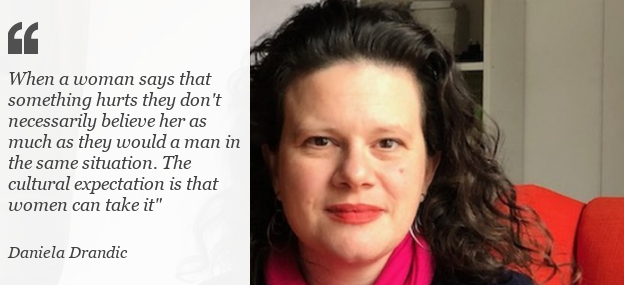
She believes that culturally there is an assumption that if a woman is going to become a mother, she will be able to take the pain.
The MP who started it all in parliament is delighted that the issue has been brought out of the shadows, but she knows the challenge now will be to keep it there.
"Right now, everyone is talking about it," says Ms Nincevic-Lesandric. "We are talking about it and it's a big change. Now we just have to find a solution to make this permanent."

Are you affected by any of the issues raised in this story? Please include a contact number if you are willing to speak to a BBC journalist.
Please read our terms of use and privacy policy.
- Published13 August 2017
